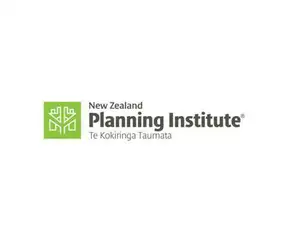Type of qualification
Level of study
Once you’ve graduated with a bachelor’s degree – or have equal experience – you can study at the postgraduate level. Doctoral qualifications require additional entry requirements.
Our courses follow the New Zealand Qualification Framework (NZQF) levels.
Time to complete
Where you can study
International students
International students are not New Zealand citizens or residents.
Study a Master of Resource and Environmental Planning – MRP
Become a highly respected planning professional with Massey’s Master of Resource and Environmental Planning. This postgraduate qualification is accredited by the New Zealand Planning Institute (NZPI). It will give you practice-focused learning, field trips and guest speakers to develop or hone the skills you’ll need as a professional planner.
Shape the future
As a planner, you could work in a diverse range of workplaces. You’ll get perspectives on both the natural and urban environment. This will make you a well-rounded professional capable of working anywhere in the world. There’s a strong emphasis on developing critical skills that will ensure you can respond to the rapid change in our political, urban and resource environments. The knowledge and skills you develop will help future-proof your career.
Study in an established environment of excellence
This qualification is recognised internationally. You’ll learn from staff who are planning practitioners and leaders in their chosen research fields.
Flexible learning
The Master of Resource and Environmental Planning is the only accredited planning degree you can do wherever you live. Most students complete their degree while in the workplace. This reduces the financial strain of making a career change.
A MRP is a good fit if you:
- want a professionally recognised planning degree
- want to change career while still in the workplace
- are interested in developing planning skills and knowledge.
Entry requirements
Admission to Massey
All students must meet university entrance requirements to be admitted to the University.
Specific requirements
To enter the Master of Resource and Environmental Planning you will have been awarded or qualified for:
- a bachelor’s degree with at least a B grade average across the highest level courses, or
- the Bachelor of Resource and Environmental Planning, with at least a B+ grade average across the highest level courses, or
- the Postgraduate Diploma in Planning with at least a B grade average (Professional Pathway) or a B+ grade average (Research Pathway).
If you have a Bachelor of Resource and Environmental Planning with a B+ average from Massey University or Postgraduate Diploma in Planning with a B grade average from Massey University as outlined above, you may apply for credit towards Part One of the qualification.
You will need to provide copies of all official academic transcripts for studies taken at all universities other than Massey University.
English language requirements
If English is not your first language and the admission qualification was not completed at a University where English is the medium of instruction, you must have achieved an IELTS of at least 7 with no band less than 6 within the preceding five years.
Time limits for Honours, Distinction and Merit
Where your qualification is completed within the stated time limit and to a high standard, you may be able to graduate with a class of Honours.
- Look for information under ‘Student Progression’ in the General Regulations for Postgraduate Degrees, Postgraduate Diplomas and Postgraduate Certificates.
- Contact us through the Get advice button on this page if you have any questions.
Prior learning, credit and exemptions
For information on prior learning, exemptions and transfer of credit or other questions:
- review the Recognition of Prior Learning regulations
- contact us through the Get advice button on this page.
English language skills
If you need help with your English language skills before you start university, see our English for Academic Purposes (EAP) courses.
Maximum time limits for completion
There are maximum time limits to complete postgraduate qualifications. If you do not complete within the maximum time, you may be required to re-apply for the qualification if you wish to continue your studies.
All requirements must be completed within six years of first enrolling in the Master of Resource and Environmental Planning degree.
Official regulations
To understand what you need to study and must complete to graduate read the official rules and regulations or this qualification.
You should read these together with all other relevant Statutes and Regulations of the University including the General Regulations for Postgraduate Degrees, Postgraduate Diplomas, and Postgraduate Certificates.
Returning students
For returning students, there may be changes to the majors and minors available and the courses you need to take. Go to the section called ‘Transitional Provisions’ in the Regulations to find out more.
In some cases the qualification or specialisation you enrolled in may no longer be taking new enrolments, so may not appear on these web pages. To find information on the regulations for these qualifications go to the Massey University Calendar.
Please contact us through the Get advice button on this page if you have any questions.
Structure of the Master of Resource and Environmental Planning
Courses are offered in alternate years. This means full-time study is not available for the entire qualification.
The Master of Resource and Environmental Planning is a parts-based qualification. That means you must complete the first part, before moving to the second.
The majority of students find that the professional pathway best suits their needs.
Professional pathway
For progression to Part Two of the Professional Pathway, you must achieve at least a B grade average in 180 credits of courses completed in Part One.
Note: If you are studying the professional pathway full-time and you achieve at least a B grade average in your first year (120 credits), you may be given approval to study Part 2 concurrently with the remaining 60 credits of Part One courses.
Research pathway
For progression to Part Two of the Research Pathway, you must achieve at least a B+ grade average in the courses completed in Part One.
Courses and specialisations
Key terms
- Courses
- Each qualification has its own specific set of courses. Some universities call these papers. You enrol in courses after you get accepted into Massey.
- Course code
- Each course is numbered using 6 digits. The fourth number shows the level of the course. For example, in course 219206, the fourth number is a 2, so it is a 200-level course (usually studied in the second year of full-time study).
- Credits
- Each course is worth a number of credits. You combine courses (credits) to meet the total number of credits needed for your qualification.
- Specialisations
- Some qualifications let you choose what subject you'd like to specialise in. Your major or endorsement is what you will take the majority of your courses in.
Credit summary
240 credits
Professional Pathway
- Part One compulsory course – 90 credits
- Part One courses selected from the Schedule – 90 credits
- Part Two professional inquiry – 60 credits
Research Pathway
- Part One compulsory course – 90 credits
- Part One courses selected from the Schedule – 30 or 60 credits
- Part Two thesis – 90 or 120 credits
Advanced entry: Those who have already completed specified qualifications in advance of the minimum entry requirements and have been granted credit for it, may be able to complete this degree in 120 credits.
This is a parts-based qualification. This means there are regulations around your completion of Part One before progressing to Part Two, etc.
Course planning key
- Prerequisites
- Courses that need to be completed before moving onto a course at the next level. For example, a lot of 200-level courses have 100-level prerequisite courses.
- Corequisites
- Courses that must be completed at the same time as another course are known as corequisite courses.
- Restrictions
- Some courses are restricted against each other because their content is similar. This means you can only choose one of the offered courses to study and credit to your qualification.
Part One
Compulsory courses
Course code: 132731 Planning Law 30 credits
The Resource Management Act 1991, and the New Zealand legal system as it relates to environmental law and the planning process.
View full course detailsCourse code: 132732 Planning Theory 30 credits
The philosophical and theoretic foundations of planning and the principles of urban design are identified and analysed using studios and seminars. Business, other disciplines and indigenous approaches to environmental planning challenge traditional views about 'public interest'. The role of planners in collaborative and communicative approaches to urban and environmental planning is identified, along with the effect of jargon in communication. The future of planning, including changes to codes of ethics and practice given a global focus on sustainable management is discussed.
View full course detailsCourse code: 132736 Professional Practice 30 credits
Development of the knowledge and skills required by the professional planner in practice. The course focuses on a range of issues in current planning practice and examines a variety of techniques that might be used to address those issues. Interactive teaching techniques are combined with lectures.
View full course detailsElective courses
Course code: 132729 Mana Taiao: Advanced Māori Planning 30 credits
Students will establish an advanced understanding of Māori planning by exploring key Māori planning concepts in relation to the environment and relevant planning situations.
View full course detailsCourse code: 132730 Policy Analysis and Evaluation Techniques 30 credits
Analytical techniques used in planning. Evaluation methods, impact assessment, forecasting and scenario methods, use of performance indicators, soft system approaches and natural resource accounting. Techniques are illustrated by case studies and practised in computer-based exercises.
View full course detailsCourse code: 132734 Urban Planning and Development 30 credits
Different theoretical and practical approaches to urban planning and development, and consequences for the urban landscape, infrastructure, economy and services
View full course detailsCourse code: 132735 Natural Resource Policy and Planning 30 credits
Natural resource planning principles and practice. Application of the concept of sustainable development to the management of biophysical resources and systems.
View full course detailsCourse code: 132741 Long-Term Community Planning 30 credits
An examination of the theoretical and empirical aspects of long-term community planning and exploration of evolving good practice.
View full course detailsCourse code: 132742 Planning History: From Town Planning to Resource Management 30 credits
An advanced exploration of the historical development of planning as a discipline and profession in New Zealand.
View full course detailsCourse code: 132751 Natural Hazards and Resilient Communities 30 credits
A study of natural hazards and the role of planning in building sustainable and disaster resilient communities. Develop and apply planning processes and tools to assess hazard vulnerability, reduce hazard risks, improve disaster readiness, develop effective response capabilities, and facilitate recovery.
View full course detailsCourse code: 145739 GIS Principles and Applications 30 credits
A conceptual and operational understanding of Geographic Information Systems (GIS). This course provides a postgraduate-level introduction to fundamentals of spatial data creation, manipulation, management, visualisation and analysis.
View full course detailsPart Two: Professional Pathway
Course code: 132890 Professional Inquiry in Planning 60 credits
An advanced exploration of planning-based research methods and their application to independent research and analysis within a planning context.
View full course detailsPart Two: Research Pathway
Option One (Choose at least 90 credits from)
Course code: 132893 Thesis 90 Credit Part 1 45 credits
A supervised and guided independent study resulting in a published work.
View full course detailsCourse code: 132894 Thesis 90 Credit Part 2 45 credits
A supervised and guided independent study resulting in a published work.
View full course detailsCourse code: 132897 Thesis 90 credits
A supervised and guided independent study resulting in a published work.
View full course detailsOption Two (Choose at least 120 credits from)
Course code: 132815 Thesis 120 Credit Part 1 60 credits
A supervised and guided independent study resulting in a published work.
View full course detailsCourse code: 132816 Thesis 120 Credit Part 2 60 credits
A supervised and guided independent study resulting in a published work.
View full course detailsCourse code: 132899 Thesis 120 credits
A supervised and guided independent study resulting in a published work.
View full course detailsFees and scholarships
Fees, student loans and free fees scheme
Your tuition fees may be different depending on the courses you choose. Your exact fees will show once you have chosen your courses.
There will also be some compulsory non-tuition fees and for some courses, there may also be charges for things such as study resources, software, trips and contact workshops.
- Get an estimate of the tuition fees for your qualification
- View a list of non-tuition fees that may be payable
Already know which courses you're going to choose?
You can view fees for the courses that make up your qualification on the course details pages.
Student loans (StudyLink) and Fees Free scheme
You may be eligible for a student loan to help towards paying your fees.
The New Zealand Government offers fees-free tertiary study for eligible domestic students. Find out more about the scheme and your eligibility on the Fees Free website. To use the site's eligibility checking tool, you will need your National Student Number.
Current and returning Massey students can find their National Student Number in the student portal.
- Student loans (StudyLink)
- Fees Free
- Student portal
Scholarship and award opportunities
- Cat Pausé Postgraduate Scholarship
- John McArthur Geography Research Scholarship
- Massey University Postgraduate Overseas Research Grant
Fees disclaimer
This information is for estimation purposes only. Actual fees payable will be finalised on confirmation of enrolment. Unless otherwise stated, all fees shown are quoted in New Zealand dollars and include Goods and Services Tax, if any. Before relying on any information on these pages you should also read the University's Disclaimer Notice.
Careers and job opportunities
With a Master of Resource and Environmental Planning, you could work in a variety of fields as diverse as planning, policy making, economic development, nature conservation and international development.
You’ll be able to apply your training locally or overseas in a variety of professional and applied environments such as:
With a Master of Resource and Environmental Planning, you could work in a variety of fields as diverse as planning, policy making, economic development, nature conservation and international development.
You’ll be able to apply your training locally or overseas in a variety of professional and applied environments such as:
- city/district councils
- regional councils
- Central government (eg, Ministry for the Environment, Department of Conservation, New Zealand Transport Agency)
- non-government organisations
- environmental and other non-governmental organisations.
What our students say
“I chose the qualification, as it is recognised by the NZ Planning Institute. Also because I could do the study part time and extramurally, in order to balance the study with my full time workload and my two young children.”

Te Rarawa
“Studying at Massey has allowed me to combine my interest in planning with my vision to grow indigenous knowledge”

Related study options
Digital Built Environment – Postgraduate Diploma in Construction
With Massey’s Postgraduate Diploma in Construction (Digital Built Environment) you’ll gain construction management skills for the modern world.
Digital Built Environment – Master of Construction
Join Massey’s Master of Construction (Digital Built Environment) to gain construction management skills for a modern digital world.
Postgraduate Certificate in Planning – PGCertPlan
Develop essential planning skills and knowledge for a great career, with Massey’s Postgraduate Certificate in Planning.
Postgraduate Diploma in Planning – PGDipPlan
Shape the places where we live, work and play with Massey’s Postgraduate Diploma in Planning. Get the essential planning skills you need for a great career.
Useful planning information

Key information for students
Compare qualifications and academic information across different New Zealand institutions. Learn more on careers.govt.nz
